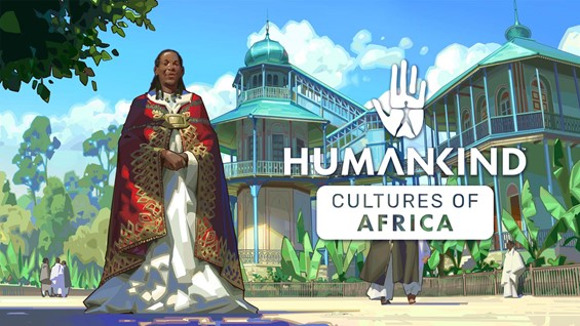Humankind impressed the masses of 4X strategy fans when the game released as the first genuine competitor to Civilisation in a generation. Evolving a familiar style of game with a more diplomatically-active and fluid, sprawling map on which to play, Humankind combined intricate and conceptually brilliant systems with an enticing appearance to suit. The game also managed to represent a vast array of cultures from across time, with the only notable absence in this arena being the lack of coverage for some parts of the world. Evidently recognising the gap to be filled in this arena, Amplitude Studios have welcomely released the first add-on DLC for their game; the Cultures of Africa Pack.
As the name suggests, Cultures of Africa represents the addition of a temporally vast and geographically distinct collection of nations which represent some of the most diverse and crucial peoples throughout the history of the world. The African continent is not only the birthplace of humankind, but a vast home to some of the world’s oldest and most celebrated traditions, cultures and places. This DLC pack does it’s best to recognise the importance of these unique nations and the limitless contributions that the people of Africa have made to the wider world.

Carefully selecting the cultures to represent in the game, Humankind’s Cultures of Africa Pack introduces one civilisation for each of the game’s ages. The six cultures added to the game are Bantu, Garamantes, Swahili, Maasai, Ethiopians and Nigerians. Whilst it is naturally impossible for the full extent of African cultures to be represented due to the great diversity and quantity of these nations throughout time, these cultures have been selected for their standout contributions to the continent, the broad recognition of their importance and their representation of their wider continent throughout the eras of the Earth. On the face of things at the very least, these representations of such an important canvas of countries is more than welcome and an important step towards greater inclusivity in Humankind.
The problem that arises with this DLC is that it fails to add anything of note in the way of mechanics. The new civilisations fit comfortably into previously introduced styles; expansionist, agrarian, merchant and militarist. The additional wonders, whilst very welcome in the mix and impressively modeled for the game, add little in the way of new, unique benefits. The greatest new addition in the mix are the unique units for each new culture, but these too do little to revolutionise the way the game is played. Unlike a Civilization-style addition to the pool of nations on offer, Cultures of Africa is much more of a representation add-on than it is a game changer.

Where mechanics remain familiar, design aspects flourish through this DLC. The look and feel of the game certainly evolves with the African continent’s addition, with some of the delightfully bright and intricate styles of these alluring cultures recognised and reproduced with care by the design team. From your leader’s powerful and detailed new outfits as you adopt the new nations as your own to the boots on the ground units and the careful realisation of their garb and armaments, the attention to detail of the designers is to be applauded.
Cultures of Africa will not change the way you play Humankind, but it represents the thoughtful and respectful recognition of a continent filled with cultural importance and historical significance. From the new peoples to the wonders that they have lived amidst and protected throughout time, your game will come alive with the addition of these African nations upon your map of the world. You should not, however, expect a revolutionary evolution of the gameplay of Humankind this time around. Whilst representation is at the forefront of this DLC, genuine expansion of mechanics and gameplay have been left to another time. For the price, this may leave some wanting. The value of these new nations’ addition, however, is naturally priceless.
Developer: Amplitude Studios
Publisher: Sega
Platforms: Macintosh operating systems, Google Stadia, Microsoft Windows
Enjoy the review? want to read more of our reviews? then click right here to be whisked away to the realm of our opinions.








You must be logged in to post a comment.